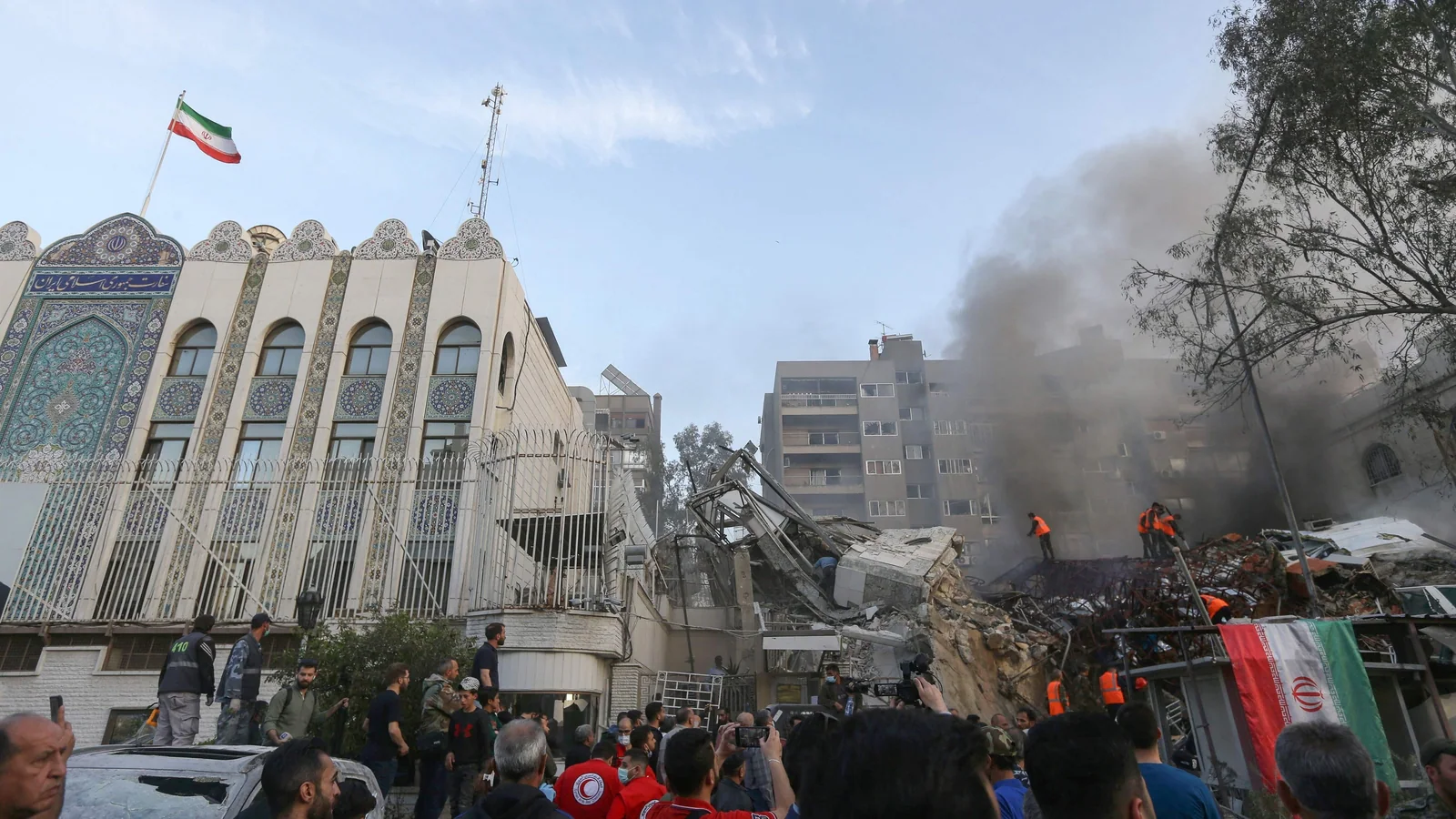Conflicting reports have emerged regarding the nature of the building struck by Israeli shelling near the Iranian embassy in Damascus on Monday, provoking outrage within Iranian circles following the deaths of advisors and commanders. According to Iranian officials, the targeted building adjacent to the Iranian embassy in Damascus serves as a consular facility and the residence of the Iranian ambassador and his family, making it off-limits for targeting under international law. However, Israeli officials, as reported in Hebrew sources, have disputed this claim.
Iran officially declared that its consulate in Damascus was bombed by Israeli aircraft, resulting in the complete collapse of the adjacent building. Among those killed in the bombing was Brigadier General Mohammad Reza Zahedi, the commander of the IRGC-Quds Force in Syria and Lebanon, who had served as the IRGC’s deputy operations commander from 2017 to 2020. Also among the casualties were Brigadier General Mohammad Hadi Haj Rahimi, as well as five other IRGC advisors: Hossein Amanullhi, Mehdi Jalalati, Shahid Sadaqat, Ali Babaei, and Ali Rozbehani.
Diplomatic or military?
While Tehran asserts that the targeted structure was intended to house a diplomatic consulate affiliated with its embassy, Israeli military spokesman Daniel Hagari refuted this claim, stating that the Israeli Air Force targeted an IRGC military facility in Damascus, not Iran’s consulate or embassy. “According to our intelligence, this is not a consulate or embassy, but rather a military facility belonging to the Quds Force unit of the Iranian Revolutionary Guards,” he told CNN.
Israeli intelligence sources also dismissed the notion that the targeted building held diplomatic status, asserting that it served as a headquarters for the Revolutionary Guards and housed IRGC operatives. According to Israel’s Intel Times, the property was not officially designated as a consulate, unlike other Iranian diplomatic properties in Latakia and Aleppo, as indicated on maps or in Iranian Foreign Ministry publications.
“The site that was attacked was indeed functioning as a headquarters for the IRGC to accommodate IRGC personnel,” added the blogger, citing intelligence sources.
However, the New York Times cited two members of the IRGC who claimed that the building hosted a “secret” meeting during the bombing. “The strike targeted a clandestine gathering where Iranian intelligence officials and Palestinian militants convened to discuss the war in Gaza,” they asserted. They confirmed the presence of “leaders of the Palestinian Islamic Jihad,” a group supported and armed by Iran.
All attention now turns to Tehran’s promised retaliation following Monday’s incident, with senior officials emphasizing that the Israeli assault “will not go unanswered.” Iran’s Mehr news agency stated, “The Iranian counter-response is assured, but the extent of this response remains uncertain.” It highlighted the attack on the Iranian consulate as a “turning point,” suggesting that Israel has initiated a new phase in the ongoing conflict between Tehran and Tel Aviv.
This article was translated and edited by The Syrian Observer. The Syrian Observer has not verified the content of this story. Responsibility for the information and views set out in this article lies entirely with the author.


